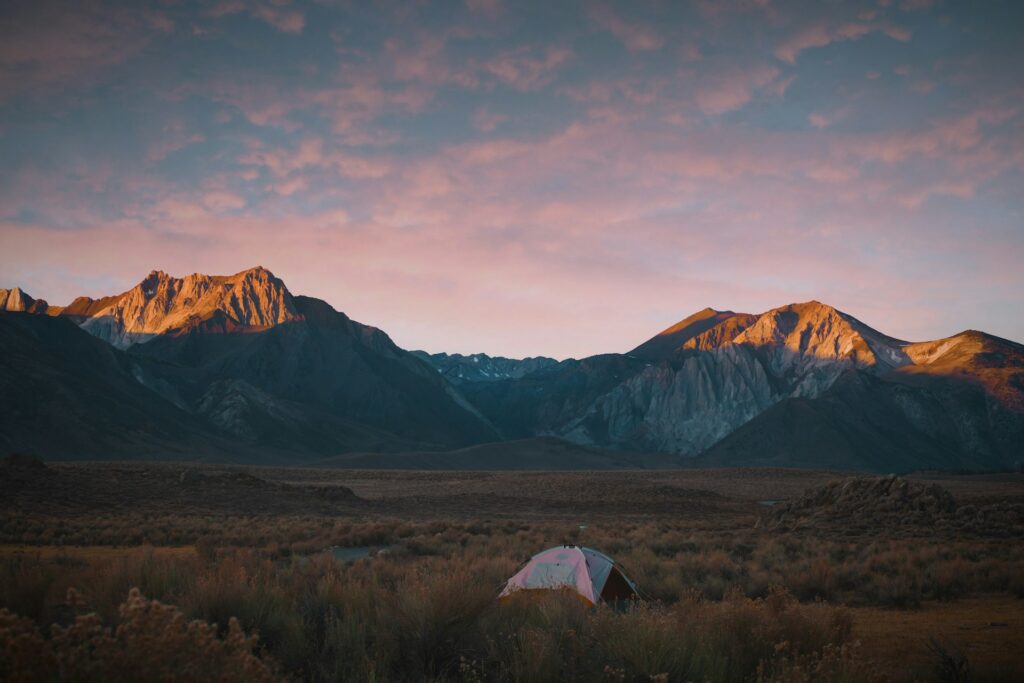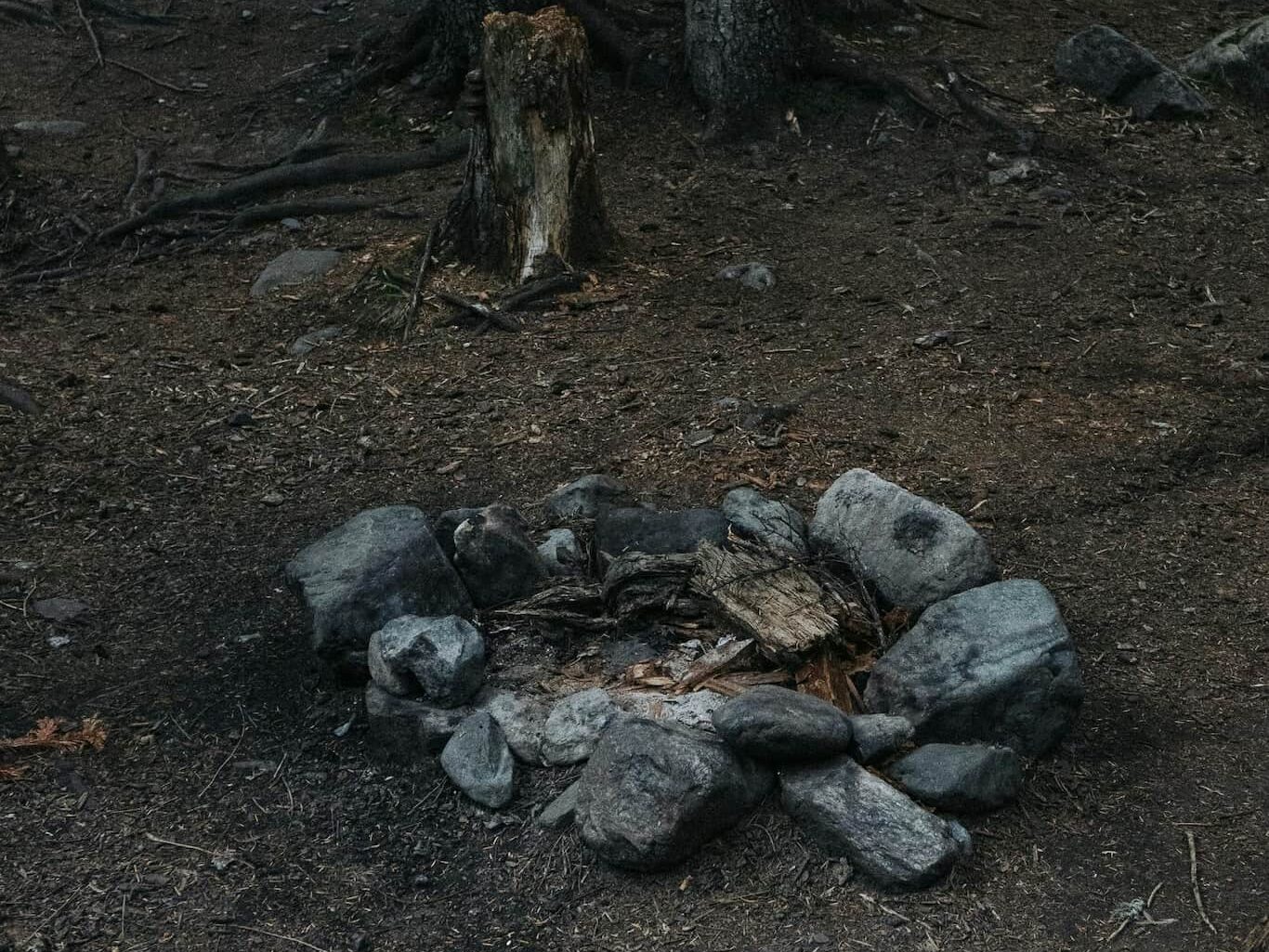
Your actions matter.
As you explore the stunning landscapes of the Eastern Sierra, remember that your actions play a critical role in preventing wildfires. With human activity responsible for 80% of wildfires, every person has the power to make a difference.
Stay Informed and Prepared
Know the regulations.
Before heading out, check for local fire restrictions and regulations. Different areas may have specific rules for campfires and fireworks, especially during dry seasons. Learn more.
Know the risk.
Stay informed about Fire Weather or Red Flag Warnings, which indicate high fire danger. Be aware of the conditions by checking the current warnings.
Get a campfire permit.
A campfire permit is required for open fires, including wood campfires, charcoal barbecues, and gas stoves, on federally managed lands. Permits are free and can be obtained at any Forest Service, CAL FIRE, or Bureau of Land Management office in California. Learn more or apply for a permit.
Campfire Safety
Come prepared.
Always bring the necessary tools to safely extinguish your fire. Before building your campfire, ensure you have enough water to put it out and a shovel to stir the coals.
Use fire rings.
Build your fire only in designated fire rings. Keep your fire small and manageable, using only wood that is forearm-sized or smaller.
Never leave unattended.
Unattended campfires are responsible for over 60% of human-caused wildfires. Never leave a fire unattended, and always supervise it.
Extinguish completely.
Fully drown your fire with water—sand and dirt are not enough. Make sure the fire is completely out before leaving your campsite. The ashes should be cold enough to safely touch with your hand.
Equipment and Vehicle Precautions
Don’t crush the brush.
Parking or driving on vegetation damages plants and creates a fire hazard. Exhaust systems can reach temperatures over 1,000°F, easily igniting dry grass and brush.
Carry a fire extinguisher and shovel.
Always carry a fire extinguisher and a shovel with you in case of an accidental fire. Shovels should be at least 24 inches long and 6 inches wide, with a steel blade. Carry a bucket or a similar container (a helmet can replace the bucket) to hold water.
Keep chains up.
When using off-highway vehicles (OHVs), ensure chains are securely fastened. Dragging chains can create sparks that ignite dry grass.
Use required spark arrestors.
OHVs must be equipped with a spark arrestor to prevent sparks from escaping and causing a fire.
Check equipment.
Regularly maintain your equipment to prevent sparks and overheating. Spark arrestors are required on all OHVs to reduce fire risks.
Cook Responsibly
Opt for camp stoves. Use camp stoves instead of open fires when possible. They are safer and reduce fire risk.
Clear the area. Make sure your stove is set up at least 5 feet from flammable materials to prevent accidental fires.


Celebrate Safely
Leave fireworks at home. Fireworks are often banned in National Forests and surrounding areas. Check local regulations before considering fireworks for any celebrations.
Report Fires
See something, say something. If you spot smoke or flames, report them immediately. Early detection is crucial in preventing large wildfires and protecting our forests.

Learn More
Additional Resources
Get expert camping tips for responsible outdoor adventures.
Learn when and how to obtain fire permits.
Understand what it means when fire danger is Low, Moderate, High or Extreme.


